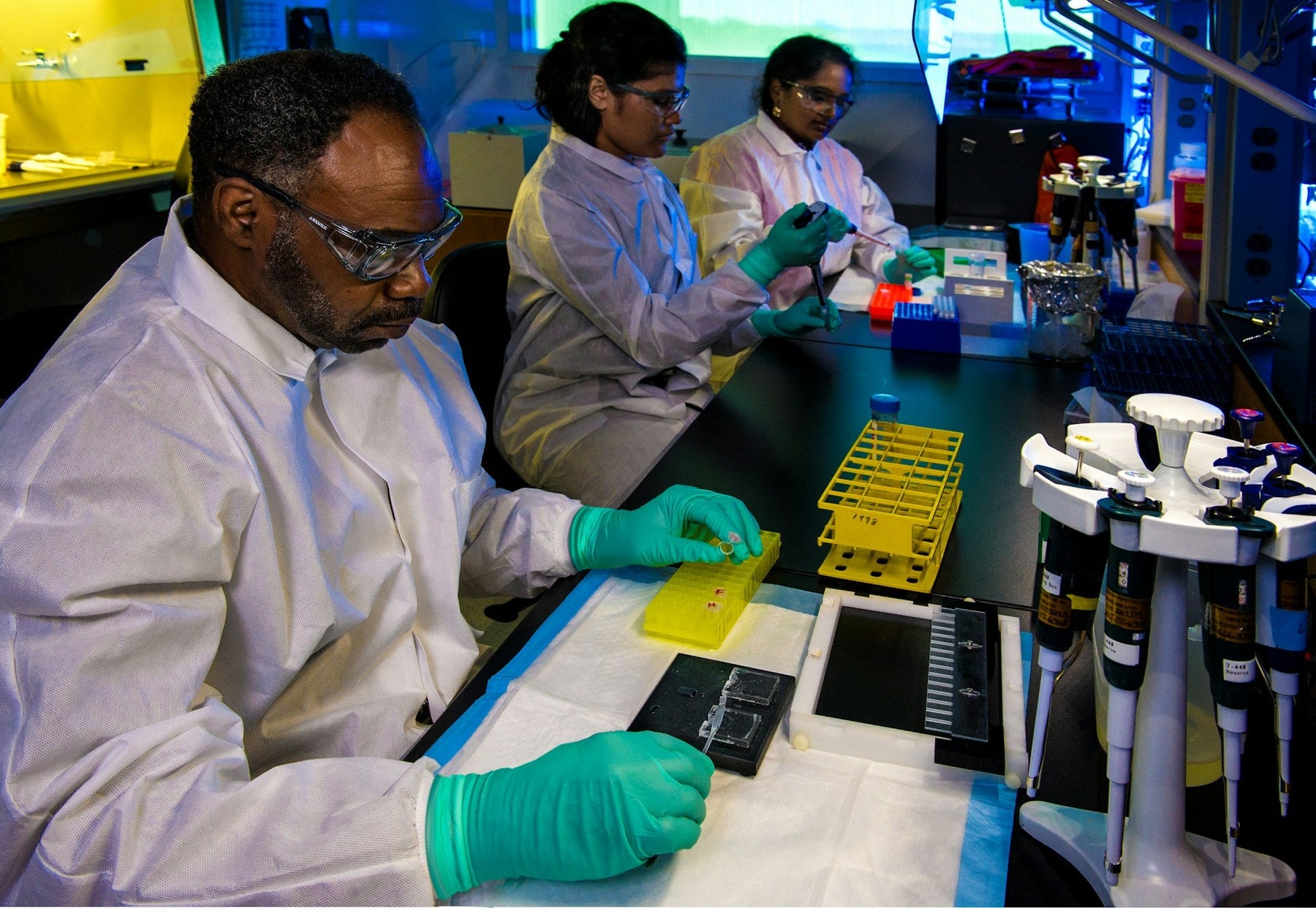
How DNA Testing Helps in Identifying Family Health Risks
DNA testing has become a powerful tool in modern healthcare, helping many people understand their family health risks. This process involves examining one's genetic makeup to detect potential conditions that could affect future well-being. By knowing the genetic predispositions, families can take specific actions to reduce health problems before they become serious.
Identifying family health risks through quick DNA testing can be a game-changer when it comes to creating a healthier lifestyle. With the ability to gain insights more rapidly than ever, individuals can address their health proactively. By focusing on how DNA testing can help pinpoint these risks efficiently, people are empowered to make informed choices for their health journey.
Understanding DNA Testing
DNA testing unlocks the secrets coded in your genes. It works by analyzing genetic material to identify variations that may lead to health concerns. With the development of quick DNA testing techniques, this once-complex process is now more accessible and prompt, enabling individuals to get vital information swiftly.
Let's break down the types of DNA tests typically available:
1. Diagnostic Tests: These help identify current health conditions based on genetic data.
2. Predictive and Presymptomatic Tests: Used to detect risk factors for developing diseases in the future.
3. Carrier Tests: Determine if someone carries a gene mutation that could be passed to their children.
Quick DNA testing holds a crucial edge for many reasons. Firstly, it delivers vital genetic information in a shorter timeframe compared to traditional methods. Secondly, it provides easy access to insights that can guide lifestyle adjustments or medical decisions. Just as you wouldn't embark on a road trip without a map, knowing your genetic makeup can guide you on the path to a healthier future.
Identifying Genetic Predispositions
DNA testing can reveal much about potential health risks lurking within your genetic code. Understanding these risks paves the way for early action, which can be life-altering. For instance, if a test shows a predisposition to a condition like heart disease, individuals have the chance to adjust their diet and exercise habits accordingly. This targeted action can significantly reduce their future risk.
There are numerous common hereditary conditions that DNA testing can pinpoint:
1. Heart Disease: Genetic markers can show a higher risk, prompting lifestyle changes early on.
2. Certain Cancers: Early detection of cancer-related genes can aid in surveillance and prevention efforts.
3. Diabetes: Identifying a genetic tendency toward diabetes can inspire dietary modifications to stave off its onset.
The importance of recognizing these risks early can't be overstated. By knowing your genetic vulnerabilities, you can engage in preventive strategies and take control of your health direction, potentially avoiding or mitigating serious diseases down the line. This proactive approach is like putting on sunscreen before heading to the beach—it's a preventative measure that helps protect you over time.
Family Health History and Prevention
Knowing your family health risks can be a powerful motivator for making smarter lifestyle choices. By being aware of these risks, you can adapt your daily habits to promote better health. Actions such as adjusting your diet, increasing physical activity, and scheduling regular health check-ups can significantly impact long-term wellness. Recognizing these connections, individuals find themselves in a better position to make informed health decisions.
To use this information effectively, families can:
1. Create a Family Health Plan: Document known health risks and prioritize actions.
2. Schedule Regular Screenings: Ensure routine check-ups to monitor potential health developments.
3. Maintain an Active Lifestyle: Encourage regular exercise and a balanced diet within the family unit.
After identifying possible genetic risks, planning follow-up measures is essential. Consulting with healthcare providers can provide guidance tailored to your specific needs, from lifestyle changes to medical interventions. This collaborative effort helps families stay a step ahead in managing potential health issues.
The Role of Quick DNA Testing in Modern Healthcare
Quick DNA testing plays a key role in providing swift and reliable genetic insights. The speedy results it offers are particularly beneficial in making timely medical decisions. When potential health problems are discovered promptly, it opens the door for immediate preventive actions that can improve outcomes. This rapid response capability is a noteworthy benefit that transforms how health information is used.
One major advantage of quick DNA testing is its convenience. Getting results faster enables families to take control of their healthcare journeys without unnecessary delays. Accessing these tests is straightforward, making it a practical option for families everywhere. This ease of use makes the decision to pursue DNA testing as effortless as planning a weekend family outing.
Planning for a Healthier Future
Understanding family health risks through DNA testing equips individuals with the knowledge to embrace healthier living actively. Recognizing these risks allows for early intervention, which can be a defining factor in long-term well-being. By integrating DNA testing into your health management strategy, you can stay proactive and better prepare for what's ahead.
With the information gained from these tests, families are empowered to tailor their lifestyles to optimize health. This proactive mindset ensures that future generations benefit from the foresight and preventive measures set in motion today. It's a smart investment in well-being that sets a solid foundation for years to come.
Embracing the potential of DNA testing provides clarity where it once lacked. In doing so, it fosters a sense of preparedness and confidence in understanding health management. By considering the insights offered by quick DNA testing, families can make informed decisions that resonate through the years, shaping healthier futures together.
To take the next step in understanding your family's genetic health, explore the opportunities offered by quick DNA testing. At RSC Health, we make it simple for families to gain valuable health insights and plan a proactive path forward. Discover how our process works by contacting us today.
